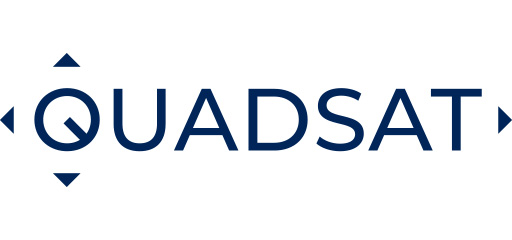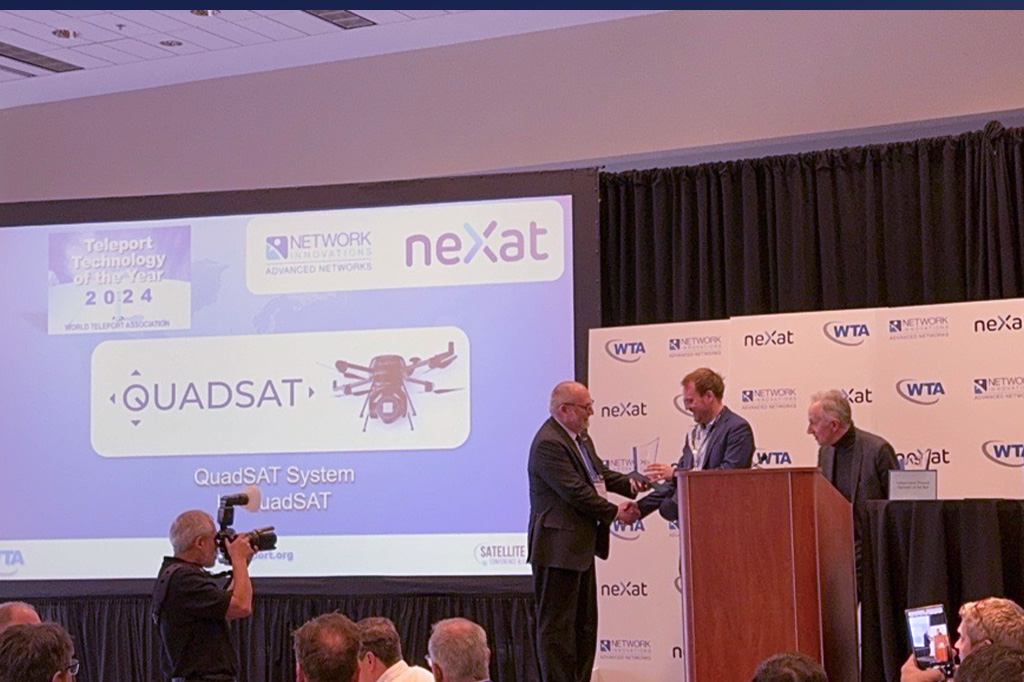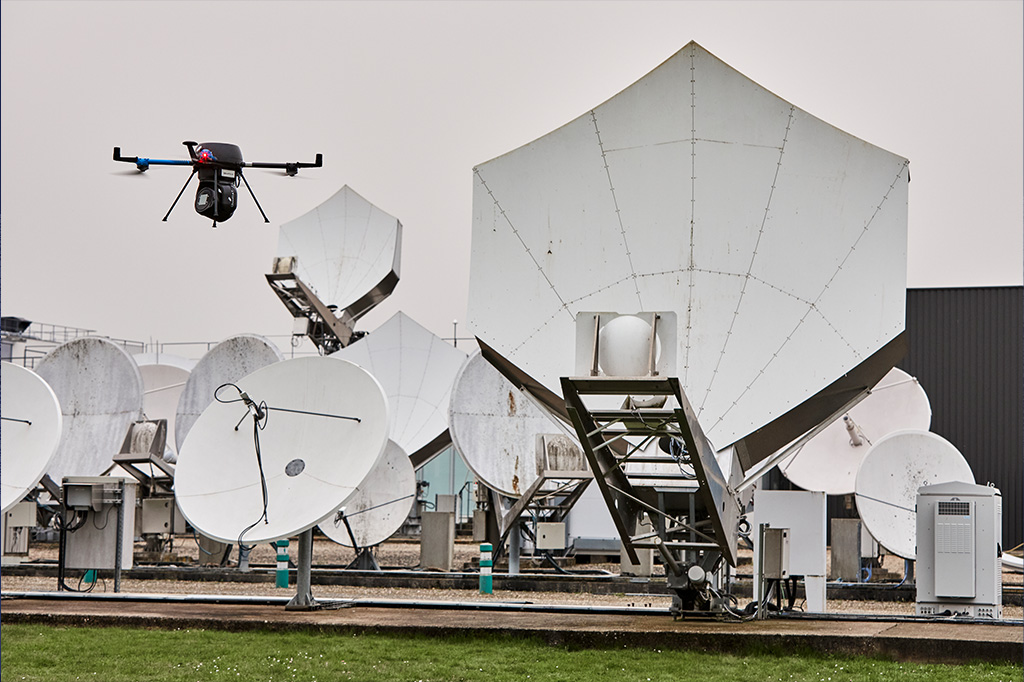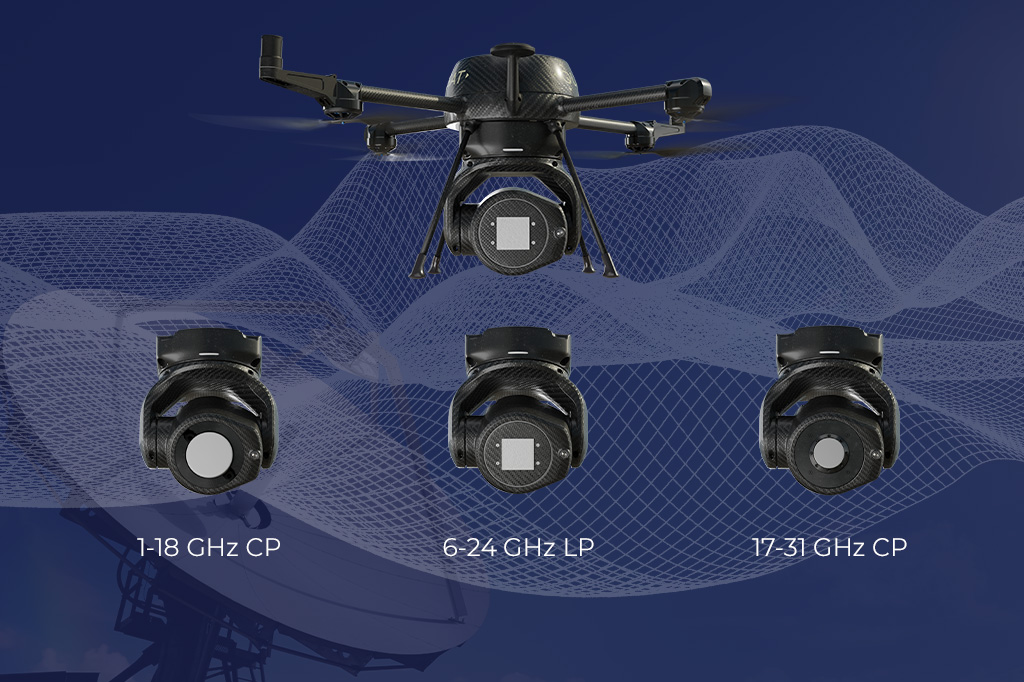In 2017, Joakim Espeland and Andrian Buchi co-founded drone antenna testing company, QuadSAT. In this blog post, they share their story as well as their top tips for launching a start-up.
How did the founders meet?
Joakim Espeland: We met at a university seminar about entrepreneurship; the key speaker was Henrik Scheel, a Danish entrepreneur based in Silicon Valley. He explained the support available from the university as well as highlighting that – with the right idea – it would be possible for anyone in the room to start up a high-tech company. Andrian and I were both studying Mechanical Engineering in Denmark at the time. Following this seminar, we ended up working together on a project which ultimately became QuadSAT.
When did you think your university project would turn into something more?
Joakim Espeland: I realised that our project could become something more on our graduation day. We were given the ‘Best project of the School’ award which came with a cash prize. Our professors told us that we should consider our project as more than academic and to start looking into funding opportunities. They were incredibly supportive; they provided us with information on government funding which was available for innovative technologies at the time. We ended up securing government funding which meant we were able to start up our business straight out of university.
Andrian Buchi: For me, the really pivotal moment was when we secured funding and were able to build a prototype. Suddenly, we could test our technology and see that our theories worked.
How did you decide on which sector to target?
Joakim Espeland: Before I went to university for the second time, I worked in the satcoms industry as a satellite service engineer for a maritime oil and gas company. When working there I saw the issues with antenna testing first-hand. Companies were having to deploy the ship on journeys purely for satellite testing; these journeys obviously come at a price, both in fuel and in downtime. A few years later I was discussing the issue with Andrian in university and explained my idea around drone tech. He thought it was an awesome idea and we went on to start our project.
What has been the biggest challenge?
Joakim Espeland: Obviously, it’s really exciting to be developing pioneering technology, but it does have its challenges! We’re having to develop our products from scratch which means rigorous testing and defining our own workflows. Of course, securing funding has been another huge aspect in developing our business. It can be frustrating if you know you have a good idea, but you don’t have the investment to make it work! We really focused on pinning our ideas down into a business model so that we could approach funding opportunities with clear objectives.
As I said before, our first round of funding came from the government so it’s always worthwhile seeing what grants they have available for innovative enterprises. Our next step in securing funding was taking part in the Seraphim Space Camp; Seraphim Capital is a venture capital fund which is dedicated to space tech. This investment really allowed us to make progress with the technology. We’ve since signed a contract with the European Space Agency (ESA) – we’re incredibly proud to be working with them.
How big is the QuadSAT team?
Joakim Espeland: There are currently 15 of us spread over two offices. Our headquarters are at the HCA airport; we positioned ourselves here as it is an amazing hub for robotics – they call it Robotics Island! There are three drone companies at this airport, and we all support each other’s projects. There isn’t anywhere else in the world that would suit us better. Our other office is in the UK where we’re looking into RF.
What has been the most rewarding moment?
Joakim Espeland: Definitely the first flight. It proved that our ideas, and most importantly the tech, worked! It gave us masses of confidence in our product and allowed us to move forward and hire who was needed to develop our business.
Andrian Buchi: We’re constantly developing and learning and it’s great as we get to apply all of our newest thoughts to our product. It’s very rewarding seeing our hard work pay off when efficiencies improve.
Any other advice?
Joakim Espeland: If you have a good idea, it’s really important to do your research and see where you fit in industry. If you can see a clear need for your tech, people will be interested. Managing funding is obviously important, however there are grants available and investors are always looking for good ideas. We’ve also benefitted hugely from joining groups like the Global VSAT Forum and the Satcoms Innovation Group – it gives you chance to meet people who could ending up using your products. Both groups have taught us a lot about the needs of the industry and where our tech should be focused.
More about Joakim:
I’ve always been interested in becoming an engineer. After I finished school, I went on to study electrical engineering and robotics at a university in my home country of Norway. It was after this that I started working in the satcoms industry. Here I realised that I wanted to train in mechanical engineering. I’d visited the university in Denmark as part of my original electrical engineering course and I knew they held real value in innovation. When I decided to return to education, I knew it would make sense to move to Denmark to study. I have always been entrepreneurial, so I always thought that I’d end up running my own business. It’s great that our university project has developed into QuadSAT – we have some really exciting times ahead!
More about Andrian:
My mother and her family are from an engineering background, so I always had that influence and always wanted a career in engineering. I grew up in Moldova and went to high school in Romania however I decided that I wanted a change and move elsewhere for university. I decided to go to university in Denmark as it had an outstanding reputation for education, especially Engineering. At the time, my English skills weren’t that great, and the university offered an opportunity to improve my language skills. The move was challenging but most definitely worth it! In the past, I’ve also worked in an engineering consultancy firm focusing on 3D technology. I’ve always aspired to running my own business. My father is a businessman and I have definitely inherited his entrepreneurial spirit!
About QuadSAT
Founded in March 2017, QuadSAT’s mobile antenna testing system provides users with affordable, accessible and accurate antenna testing and calibration. The system utilizes a custom-built RF payload, drone technology, and mathematical algorithms in order to effectively simulate satellites and perform critical antenna performance tests. QuadSAT’s system has been developed to meet industry-wide standards.
Press contact:
Helen Weedon
Radical Moves PR
+44 (0)1570 434632



